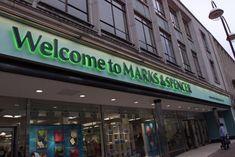
While retailers may be promising consumers that they are ‘greener than thou’, experts have warned that for many, their business models lag behind the facts.
A new report published this week by the independent Food Ethics Council states that though major food retailers such as Tesco, Asda and Marks and Spencer have made ambitious commitments to go green and fair, cutting greenhouse gas emissions, reducing waste and giving producers a better deal, there are questions whether the supermarkets’ ‘big retail’ business model is up to the challenges.
Dr Tom MacMillan, executive director of the Food Ethics Council and editor of the new bulletin of ‘Food Ethics’, said: “Supermarkets depend on huge economies of scale, scouring the globe for bargains and buying in bulk.
“They add value from ‘food miles’ and from sourcing out of season. Will doing the same thing more efficiently cut our food’s environmental footprint by enough?”
Even if supermarkets can go green, some contributors to the report fear this will be at the expense of suppliers’ rights.
Because supermarkets are powerful buyers, the report says, the costs of raising standards get passed down the supply chain - and the weakest people in the chain are the workers who grow and make the products sold in the UK.
"If the way supermarkets do business limits how green and fair they can become, then they will have to change fast. But they can’t do it alone - they will need help from shareholders, campaigners and government,” MacMillan added.



